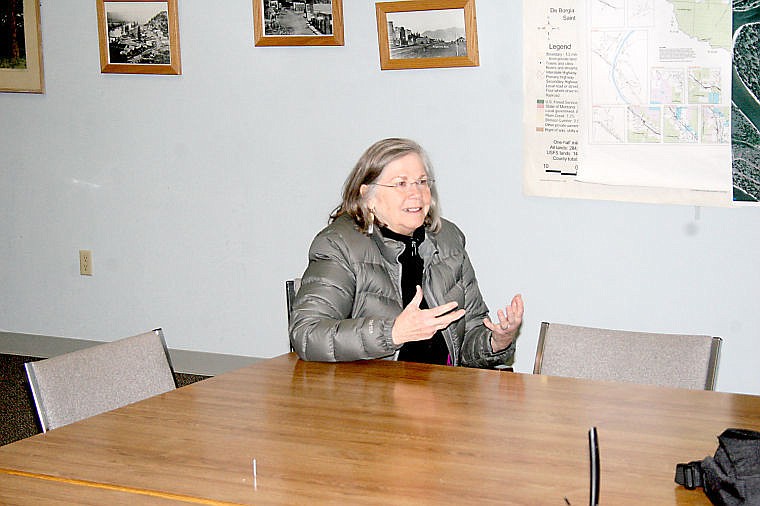Election rules name courthouse neutral ground
SUPERIOR – A ban on campaigning within the courthouse was just one thing discussed when the county department heads presented their monthly updates to the Mineral County Commissioners during their regular meeting.
According to Staci Hayes, Mineral County clerk and recorder, it is illegal to campaign at the courthouse during business hours. She said this was to keep someone from cornering a group to deliver a campaign speech.
“You’ve got this hostage audience,” Hayes said. “It’s not fair [and] puts everyone in a bad mood.”
During business hours, the courthouse is politically neutral ground. From 9 a.m. to 5 p.m. no campaigning can be done within the courthouse.
According to Hayes, the rule requires people be very careful about what they say and if it spreads a campaign message. This could go so far as to include simply talking about a candidate, even if the election is not discussed.
The candidates themselves need to be careful about what they say as well. According to Hayes, it is unacceptable to mention candidacy even during an introduction because of the subconscious message it conveys.
“You don’t even think about it, because it feels and it seems harmless at the time, but it’s not,” Hayes said. “It’s not ok. It’s not good practice and it should be avoided at all costs.”
The rule is in place because of the courthouse’s position as a polling location. Even though the building only takes on this role on Election Day, the precaution is in place year round. It has also been used to keep groups within the county government from expressing a bias for a candidate.
After the department heads gave their updates, other business was put before the commissioners. This included plans for future events this year.
One such topic discussed was the use of tobacco during the county fair this year. The subject was raised by Peggy Stevens, a health nurse. She proposed the fair be made completely smoke free.
This would include the entire fairgrounds with a designated smoking area a short distance away. She recalled how in the past ‘no smoking’ signs were posted in certain areas but people would still wander into them and expose people to secondhand smoke.
“The rule of thumb is if you can smell the smoke, you’re probably getting the bad stuff,” Stevens said.
She said there was no reason to not look into the idea. When other counties set up smoke free policies, they saw improvements in people’s enjoyment of the events and the health of residents.
The policy would be largely self-enforced during the fair. As people begin to get comfortable with the idea, they will begin to police themselves.
Stevens said it would be similar to how people reacted after the dangers of smoking became public. After the announcements, many people began to learn about the subject and stopped smoking.
Stevens felt the important part of the policy was the children who would be affected. She said secondhand smoke could cause big problems in kids, especially with asthma.
“We really want to protect the rights of people, but we also need to protect the health of people,” Stevens said.

